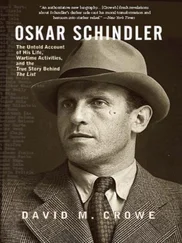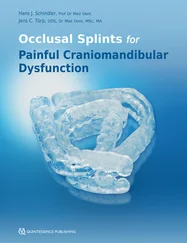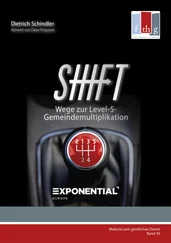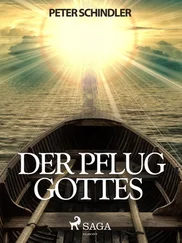By the time he sat down to dinner that evening at the hotel with Emilie, Reubinski, the Rechens, and the others, Oskar’s property had passed to the Soviets, and his last few jewels and currency were lost in the interstices of the liberating bureaucracy. He was as good as penniless, but was eating as well as could be managed in a good hotel with a number of his “family.” All of which would be the pattern of his future.
Oskar’s high season ended now. The peace would never exalt him as had the war. Oskar and Emilie came to Munich. For a time they shared lodgings with the Rosners, for Henry and his brother had been engaged to play at a Munich restaurant and had achieved a modest prosperity. One of his former prisoners, meeting him at the Rosners’ small, cramped apartment, was shocked by his torn coat. His property in Cracow and Moravia had, of course, been confiscated by the Russians, and his remaining jewelry had been traded for food and liquor. When the Feigenbaums arrived in Munich, they met his latest mistress, a Jewish girl, a survivor not of Brinnlitz but of worse camps than that. Many of the visitors to Oskar’s rented rooms, as indulgent as they were toward Oskar’s heroic weaknesses, felt shamed for Emilie’s sake.
He was still a wildly generous friend and a great discoverer of unprocurables. Henry Rosner remembers that he found a source of chickens in the midst of chickenless Munich. He clung to the company of those of his Jews who had come to Germany— the Rosners, the Pfefferbergs, the Dresners, the Feigenbaums, the Sternbergs. Some cynics would later say that at the time it was wise of anyone involved in concentration camps to stay close to Jewish friends as protective coloration. But his dependence went beyond that sort of instinctive cunning. The Schindlerjuden had become his family.
In common with them, he heard that Amon Goeth had been captured by Patton’s Americans the previous February, while a patient in an SS sanitarium at Bad Tolz; imprisoned in Dachau; and at the close of the war handed over to the new Polish government. Amon was in fact one of the first Germans dispatched to Poland for judgment. A number of former prisoners were invited to attend the trial as witnesses, and among the defense witnesses a deluded Amon considered calling were Helen Hirsch and Oskar Schindler. Oskar himself did not go to Cracow for the trials. Those who did found that Goeth, lean as a result of his diabetes, offered a subdued but unrepentant defense. All the orders for his acts of execution and transportation had been signed by superiors, he claimed, and were therefore their crimes, not his. Witnesses who told of murders committed by the Commandant’s own hand were, said Amon, maliciously exaggerating. There had been some prisoners executed as saboteurs, but there were always saboteurs in wartime.
Mietek Pemper, waiting in the body of the court to be called to give evidence, sat beside another Płaszów graduate who stared at Amon in the dock and whispered, “That man still terrifies me.” But Pemper himself, as first witness for the prosecution, delivered an exact catalogue of Amon’s crimes. He was followed by others, among them Dr. Biberstein and Helen Hirsch, who had precise and painful memories. Amon was condemned to death and hanged in Cracow on September 13, 1946. It was two years to the day since his arrest by the SS in Vienna on black-marketeering charges. According to the Cracow press, he went to the gallows without remorse and gave the National Socialist salute before dying.
In Munich, Oskar himself identified Liepold, who had been detained by the Americans. A Brinnlitz prisoner accompanied Oskar at the lineup, and says that Oskar asked the protesting Liepold, “Do you want me to do it, or would you rather leave it to the fifty angry Jews who are waiting downstairs in the street?” Liepold would also be hanged—not for his crimes in Brinnlitz, but for earlier murders in Budzyn.
Oskar had probably already conceived the scheme of becoming a farmer in Argentina; a breeder of nutria, the large South American aquatic rodents considered precious for their skins. Oskar presumed that the same excellent commercial instincts which had brought him to Cracow in 1939 were now urging him to cross the Atlantic. He was penniless, but the Joint Distribution Committee, the international Jewish relief organization to whom Oskar had made reports during the war and to whom his record was known, were willing to help him. In 1949 they made him an ex gratia payment of $15,000 and gave a reference (“To Whom It May Concern”) signed by M.W. Beckelman, the vice chairman of the “Joint’s” Executive Council. It said:
The American Joint Distribution Committee has thoroughly investigated the wartime and Occupation activities of Mr. Schindler…. We recommend wholeheartedly that all organizations and individuals contacted by Mr. Schindler do their utmost to help him, in recognition of his outstanding service…. Under the guise of operating a Nazi labor factory first in Poland and then in the Sudetenland, Mr. Schindler managed to take in as employees and protect Jewish men and women destined for death in Auschwitz or other infamous concentration camps…. “Schindler’s camp in Brinnlitz,” witnesses have told the Joint Distribution Committee, “was the only camp in the Nazi-occupied territories where a Jew was never killed, or even beaten, but was always treated as a human being.”
Now that he is about to begin his life anew, let us help him as once he helped our brethren.
When he sailed for Argentina, he took with him half a dozen families of Schindlerjuden, paying the passage for many of them. With Emilie, he settled on a farm in Buenos Aires province and worked it for nearly ten years. Those of Oskar’s survivors who did not see him in those years find it hard now to imagine him as a farmer, since he was never a man for steady routine. Some say, and there is some truth to it, that Emalia and Brinnlitz succeeded in their eccentric way because of the acumen of men like Stern and Bankier. In Argentina, Oskar had no such support, apart, of course, from the good sense and rural industriousness of his wife. The decade in which Oskar farmed nutria, however, was the period in which it was demonstrated that breeding, as distinct from trapping, did not produce pelts of adequate quality. Many other nutria enterprises failed in that time, and in 1957 the Schindlers’ farm went bankrupt. Emilie and Oskar moved into a house provided by B’nai B’rith in San Vicente, a southern suburb of Buenos Aires, and for a time Oskar sought work as a sales representative. Within a year, however, he left for Germany. Emilie remained behind.
Living in a small apartment in Frankfurt, he sought capital to buy a cement factory, and pursued the possibility of major compensation from the West German Ministry of Finance for the loss of his Polish and Czechoslovakian properties.
Little came of this effort. Some of Oskar’s survivors considered that the failure of the German government to pay him his due arose from lingering Hitlerism in the middle ranks of the civil service. But Oskar’s claim probably failed for technical reasons, and it is not possible to detect bureaucratic malice in the correspondence addressed to Oskar from the ministry.
The Schindler cement enterprise was launched on capital from the Joint Distribution Committee and “loans” from a number of Schindler Jews who had done well in postwar Germany. It had a brief history. By 1961, Oskar was bankrupt again. His factory had been hurt by a series of harsh winters in which the construction industry had closed down; but some of the Schindler survivors believe the company’s failure was abetted by Oskar’s restlessness and low tolerance for routine.
That year, hearing that he was in trouble, the Schindlerjuden in Israel invited him to visit them at their expense. An advertisement appeared in Israel’s Polish-language press asking that all former inmates of Concentration Camp Brinnlitz who had known “Oskar Schindler the German” contact the newspaper. In Tel Aviv, Oskar was welcomed ecstatically. The postwar children of his survivors mobbed him. He had grown heavier and his features had thickened. But at the parties and receptions, those who had known him saw that he was the same indomitable Oskar. The growling deft wit, the outrageous Charles Boyer charm, the voracious thirst had all survived his two bankruptcies.
Читать дальше












